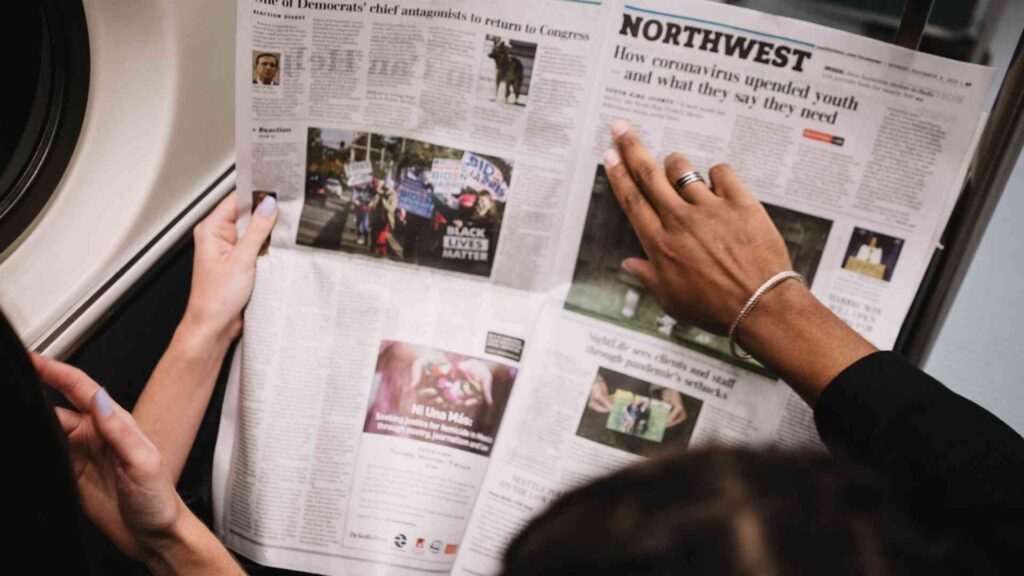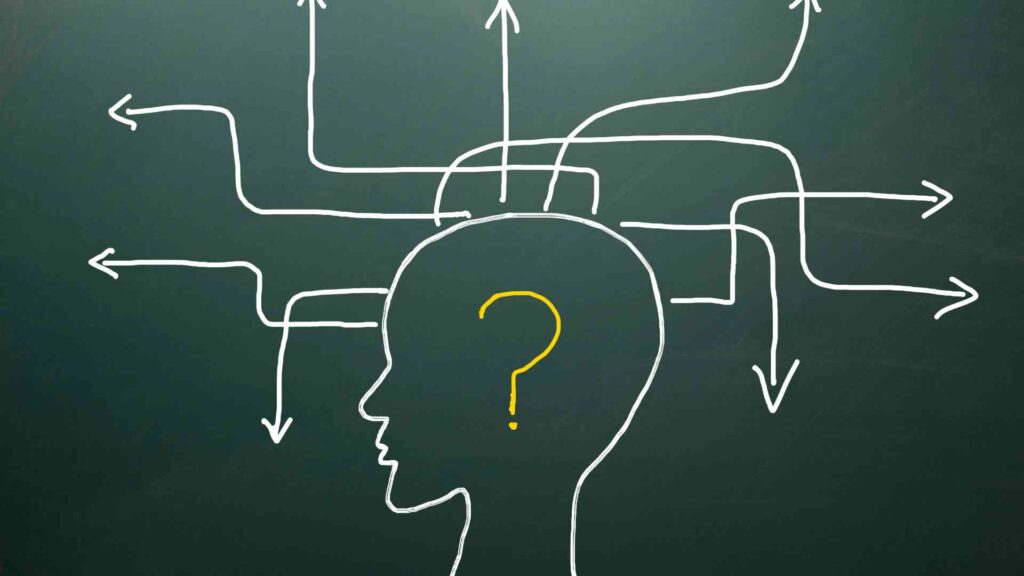यौन स्वास्थ्य के सभी पहलुओं के लिए व्यापक जानकारी प्राप्त करें और अपने यौन कल्याण को सशक्त बनाने के लिए संसाधन और मार्गदर्शन खोजें।
Painful erections never indicate normalcy, and sometimes signal a medical emergency. Severe pain may necessitate…
यौन स्वास्थ्य के सभी पहलुओं के लिए व्यापक जानकारी प्राप्त करें और अपने यौन कल्याण को सशक्त बनाने के लिए संसाधन और मार्गदर्शन खोजें।
Painful erections never indicate normalcy, and sometimes signal a medical emergency. Severe pain may necessitate…
The underlying cause as well as the severity of pain determine the varied treatment approaches…
Sleep-related painful erection (SRPE) is a rare condition where people get painful erections while they’re…
The International Society for the Study of Women’s Sexual Health describes Hypoactive sexual desire disorder…
The pelvic floor muscles are the unsung heroes of our body’s core, providing support to…
Feeling nervous about sexual performance, known as Sexual Performance Anxiety (SPA), is pretty common. But…
Assertiveness is a crucial skill that enhances communication, reduces stress, and promotes self-confidence. It enables…
हम उन सबूतों पर ध्यान देते हैं, उन पर ध्यान केंद्रित करते हैं और उन्हें अधिक विश्वसनीयता देते हैं जो हमारी मौजूदा मान्यताओं से मेल खाते हैं - यही पुष्टिकरण पूर्वाग्रह का वर्णन करता है।
विषयसूची
विषयसूचीकिसी ऐसे व्यक्ति पर विचार करें जो मानता है कि बाएं हाथ के व्यक्ति अपने दाएं हाथ के समकक्षों की तुलना में अधिक रचनात्मक होते हैं। जब भी इस व्यक्ति का सामना किसी रचनात्मक व्यक्ति से होता है जो बाएं हाथ का भी है, तो वे इस सहायक "सबूत" को अधिक महत्व देते हैं। यह व्यक्ति सक्रिय रूप से अतिरिक्त सबूत की तलाश कर सकता है जो उनके विश्वास को पुष्ट करता है जबकि इसके विपरीत उदाहरणों को कमतर आंकता है।

Confirmation biases not only affect how we collect information but also shape how we interpret and recall it.
For instance, individuals with strong opinions for or against a specific issue not only search for information that aligns with their views but also interpret news stories in a manner that supports their existing ideas. Furthermore, they tend to remember details in a way that reinforces these attitudes.
Confirmation bias often exhibits clear indicators, whether someone is unwittingly or consciously succumbing to it.
Unfortunately, it can also manifest subtly, making detection challenging. Here are some signs that may assist in recognizing when you or someone else is experiencing this bias:

पुष्टिकरण पूर्वाग्रह विभिन्न रूपों में प्रकट हो सकता है, और कुछ सबसे सामान्य प्रकारों में शामिल हैं:
Related: Heuristic: Meaning, Types, Significance And Examples

पुष्टिकरण पूर्वाग्रह जानकारी एकत्र करने और व्याख्या करने की प्रक्रिया में एक संज्ञानात्मक शॉर्टकट के रूप में होता है। हमारा दिमाग साक्ष्य के मूल्यांकन में दक्षता चाहता है, और पुष्टिकरण पूर्वाग्रह गहन विश्लेषण के लिए आवश्यक समय और ऊर्जा से बचने का एक शॉर्टकट प्रदान करता है।
कई प्रक्रियाएँ पुष्टिकरण पूर्वाग्रह में योगदान करती हैं, सभी अलग-अलग चरणों में व्यक्तियों को संज्ञानात्मक असंगति से बचाने के लिए काम करती हैं - परस्पर विरोधी मान्यताओं से उत्पन्न होने वाली असुविधा। इन प्रक्रियाओं में शामिल हैं:
पुष्टिकरण पूर्वाग्रह को मानसिक शॉर्टकट के नाम से जाना जाता है heuristics, जो कुशल लेकिन कभी-कभी गलत निर्णय लेने में सहायता करते हैं।
The evolutionary perspective suggests that our reliance on mental shortcuts is rooted in survival instincts.
Quick decision-making was crucial for our ancestors facing immediate threats, and these shortcuts allowed them to make rapid choices based on past experiences and instincts.

Additionally, confirmation bias serves a psychological function by making us feel good about ourselves. Challenging our beliefs can be uncomfortable, as deeply held views form part of our identities. Avoiding being proven wrong becomes a natural inclination, and seeking information that supports our existing beliefs helps maintain a positive self-image.
Confirmation bias is not limited to individual behavior; it can also manifest in group settings. In group interactions, confirmatory thought, which rationalizes a particular belief, can lead to groupthink—a phenomenon where the desire for conformity results in dysfunctional decision-making.
Thus, while confirmation bias is often observed at an individual level, it can also influence group dynamics.
पुष्टिकरण पूर्वाग्रह, चाहे व्यक्तिगत रूप से या समूह संदर्भ में व्यक्त किया गया हो, महत्वपूर्ण चुनौतियाँ पैदा करता है जिन पर सावधानीपूर्वक विचार करने की आवश्यकता है।
व्यक्तिगत रूप से, पुष्टिकरण पूर्वाग्रह हमारे पूर्वधारणाओं के अनुरूप साक्ष्यों पर हमारा ध्यान सीमित करके निर्णय लेने को प्रभावित करता है। यह दृष्टिकोण खराब जानकारी वाले निर्णयों को जन्म दे सकता है, क्योंकि महत्वपूर्ण जानकारी को नजरअंदाज कर दिया जाता है।

For instance, a voter might support a candidate despite emerging facts about their poor behavior, or a business executive might dismiss a new opportunity based on negative past experiences.
Individuals characterized by confirmation bias may be perceived as “close-minded,” and this mindset can result in missed opportunities and less informed choices. To mitigate these effects, it is essential to approach decisions with an open mind and consider a broad range of perspectives.
At the group level, confirmation bias can contribute to the phenomenon of groupthink.
In a culture dominated by groupthink, decision-making is hindered by the belief that harmony and group coherence are paramount to success.
This tendency reduces the likelihood of dissent within the group.

For example, an employee at a technology firm may withhold a groundbreaking discovery to avoid disrupting the company’s established direction. Groupthink also discourages individuals from exploring diverse views, hindering constructive discussions that are vital to democratic processes. To foster a more robust decision-making environment, it is crucial to recognize and address confirmation bias at both individual and group levels.
पुष्टिकरण पूर्वाग्रह रोजमर्रा की जिंदगी के विभिन्न पहलुओं में प्रकट होता है, और कुछ उदाहरणों की जांच से इसके प्रभावों और प्रभावों के बारे में जानकारी मिल सकती है।
One prevalent example of confirmation bias is observed in how individuals seek out and interpret news stories, often influenced by their pre-existing views. This bias leads us to be more inclined to believe stories that confirm our existing beliefs, even when the evidence is questionable.

For instance, in the context of the gun control debate:
सैली, बंदूक नियंत्रण की समर्थक: वह सक्रिय रूप से ऐसी समाचार कहानियों और राय की तलाश करती है जो बंदूक स्वामित्व पर प्रतिबंध की आवश्यकता को सुदृढ़ करती हैं। गोलीबारी के बारे में मीडिया रिपोर्टों का सामना करते समय, वह उनकी व्याख्या इस तरह करती है जो सख्त बंदूक नियंत्रण की आवश्यकता में उसके विश्वास के अनुरूप होती है।
हेनरी, बंदूक नियंत्रण के विरोधी: इसके विपरीत, हेनरी ऐसे समाचार स्रोतों की तलाश करते हैं जो बंदूक नियंत्रण के खिलाफ उनके रुख को प्रतिबिंबित करते हों। जब वह गोलीबारी के बारे में समाचार कहानियों का सामना करता है, तो वह उनकी व्याख्या इस तरीके से करता है जो सख्त नियमों के खिलाफ उसके मौजूदा दृष्टिकोण का समर्थन करता है।
दोनों ही मामलों में, पुष्टिकरण पूर्वाग्रह जानकारी के चयन और व्याख्या को प्रभावित करता है, जिससे उनकी पूर्वकल्पित मान्यताओं के आधार पर मुद्दे पर व्यक्तियों के दृष्टिकोण को आकार मिलता है। यह प्रवृत्ति जटिल विषयों की ध्रुवीकृत समझ में योगदान कर सकती है, जिससे खुली और वस्तुनिष्ठ चर्चा में बाधा उत्पन्न हो सकती है।
Confirmation bias also plays a role in how we form and maintain personal relationships.

In this context, we tend to be drawn to friends and partners who share our beliefs and values, while being less inclined to associate with those who hold opposing views. T
his inclination can create an echo chamber effect, where our social circles consist mainly of individuals who validate our perspectives, limiting exposure to diverse opinions and challenging discussions.
Confirmation bias significantly influences decision-making processes, often leading to suboptimal choices.

For instance:
Investment Decisions: If we strongly believe in the potential of a particular investment, confirmation bias may cause us to overlook warning signs or negative information that contradicts our views. This can result in financial losses due to a failure to objectively evaluate the risks.
Career Choices: When fixated on securing a job with a specific company, confirmation bias may prevent us from considering alternative opportunities that could be a better fit for our skills and aspirations. This narrow focus limits our ability to explore potentially more rewarding career paths.
Related: अनुमानी निर्णय लेना.
पुष्टिकरण पूर्वाग्रह से बचने के लिए सचेत प्रयास और निर्णय लेने पर इसके संभावित प्रभाव की समझ की आवश्यकता होती है। पुष्टिकरण पूर्वाग्रह को कम करने के लिए यहां कुछ रणनीतियाँ दी गई हैं:

हालाँकि पुष्टिकरण पूर्वाग्रह को पूरी तरह से ख़त्म करना चुनौतीपूर्ण हो सकता है, लेकिन ये रणनीतियाँ इसके प्रभाव को प्रबंधित करने और अधिक उद्देश्यपूर्ण निर्णय लेने को बढ़ावा देने में मदद कर सकती हैं। खुले विचारों वाला दृष्टिकोण विकसित करना, विविध जानकारी प्राप्त करना और आलोचनात्मक चर्चाओं को आमंत्रित करना अधिक जानकारीपूर्ण और सर्वांगीण विकल्प बनाने में योगदान कर सकता है।
पुष्टिकरण पूर्वाग्रह एक संज्ञानात्मक प्रवृत्ति है जहां व्यक्ति अवचेतन रूप से प्राथमिकता देते हैं और उन सबूतों को अधिक महत्व देते हैं जो उनकी मौजूदा मान्यताओं के साथ संरेखित होते हैं। यह पूर्वाग्रह सूचना एकत्र करने की प्रक्रिया में एक मानसिक शॉर्टकट के रूप में कार्य करता है, जिससे मस्तिष्क को समय और ऊर्जा बचाने की अनुमति मिलती है।
साक्ष्य का मूल्यांकन करते समय, व्यक्ति अक्सर ऐसी जानकारी की तलाश करते हैं जो उस बात को पुष्ट करती हो जिसे वे पहले से ही सच मानते हैं क्योंकि मौजूदा परिकल्पनाएँ अधिक आसानी से उपलब्ध हैं। इसके अतिरिक्त, पुष्टिकरण पूर्वाग्रह आत्म-सम्मान बनाए रखने के लिए एक आत्म-सुरक्षा तंत्र के रूप में कार्य कर सकता है। लोग ऐसी जानकारी से बचते हैं जो उनके मूल्यवान विश्वासों को चुनौती देती है ताकि उन्हें यह अहसास न हो कि उनका पसंदीदा विश्वास झूठा हो सकता है। नतीजतन, व्यक्ति अक्सर ऐसी जानकारी की ओर आकर्षित होते हैं जो उनकी पहले से मौजूद मान्यताओं का खंडन करने के बजाय समर्थन करती है।
संदर्भ
एमबीबीएस और एमडी डिग्री वाली मेडिकल डॉक्टर डॉ. निष्ठा पोषण और कल्याण के प्रति गहरी रुचि रखती हैं। शारीरिक और मानसिक स्वास्थ्य के साथ महत्वपूर्ण संघर्षों से भरी उनकी व्यक्तिगत यात्रा ने उन्हें अनगिनत व्यक्तियों के सामने आने वाली चुनौतियों के प्रति एक अद्वितीय सहानुभूति और अंतर्दृष्टि प्रदान की है। अपने स्वयं के अनुभवों से प्रेरित होकर, वह व्यावहारिक, साक्ष्य-समर्थित मार्गदर्शन प्रदान करने के लिए अपनी पृष्ठभूमि का लाभ उठाती है, जिससे दूसरों को समग्र कल्याण प्राप्त करने के रास्ते पर सशक्त बनाया जा सके। डॉ. निष्ठा वास्तव में मन और शरीर के अंतर्संबंध में विश्वास करती हैं। वह जीवन में संतुलन और खुशी प्राप्त करने की दिशा में एक महत्वपूर्ण कदम के रूप में इस संबंध को समझने के महत्व पर जोर देती है।

